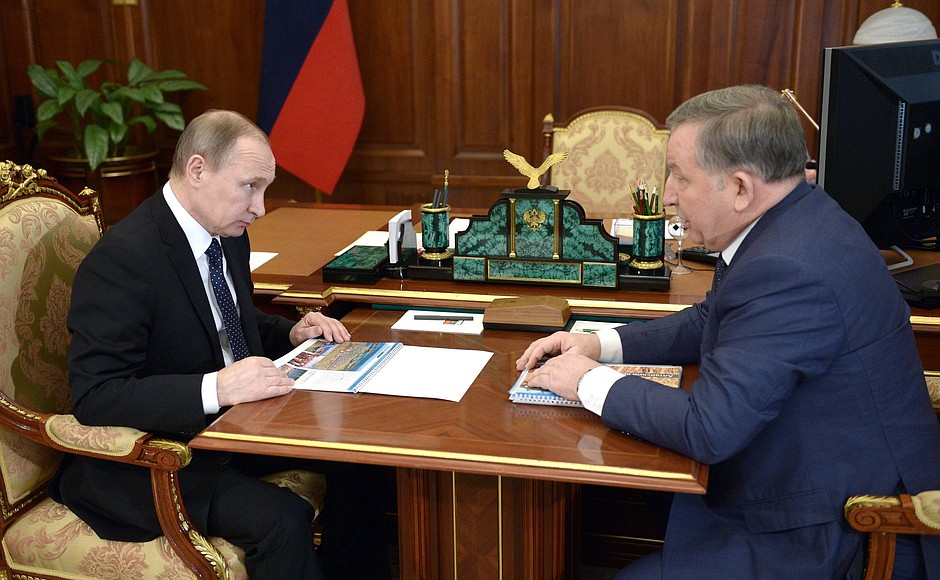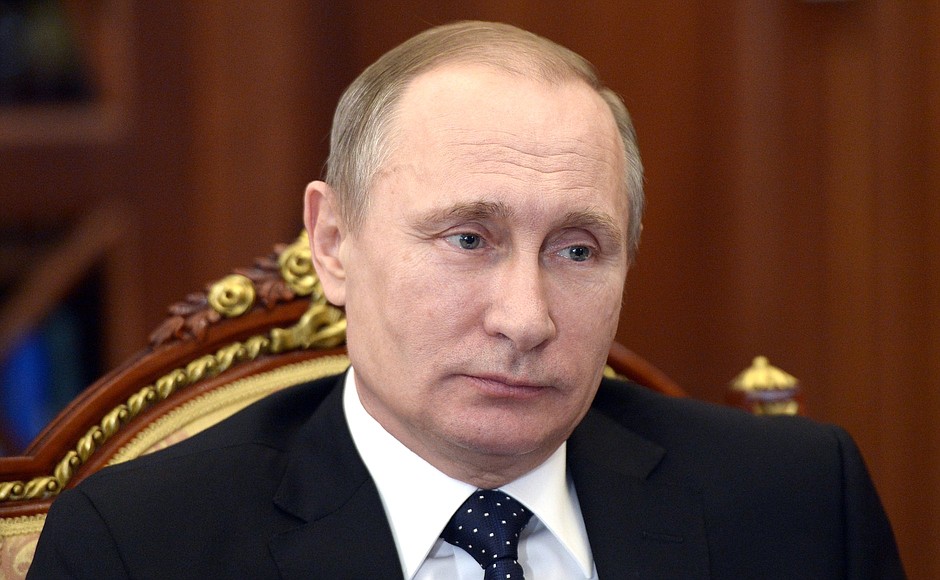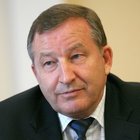President of Russia Vladimir Putin: Let’s start with tourism. Altai Republic and Altai Territory are becoming increasingly popular holiday destinations among Russians, and our guests from abroad are also visiting this region in ever greater numbers. Let’s look at this sector first.
Altai Territory Governor Alexander Karlin: Mr President, let me show you just one photo. This is one of the lakes in the west of Altai Territory. You can see the number of people holidaying there in the summer. Two holiday resorts operate there and we are making big efforts right now to develop this site.
Vladimir Putin: It’s Lake Yarovoye?
Alexander Karlin: Yes, that’s right.
This is in the steppe area and it is a unique site with three lakes, one salt water, one alkaline, and one freshwater. A project has already been announced to build a modern holiday resort there with capacity for 500 people and investment of around 1 billion rubles.
Our forecasts have proven correct: the number of tourists visiting the region in 2015 increased by around 20 percent and today comes to nearly 2 million people, 1.9 million, to be more precise.
Ten years ago, when we started discussing this subject, we looked at tourism as something optional for Altai Territory’s socioeconomic development, but today, we can say confidently that it is one of the drivers of economic and infrastructure growth.
We have three projects included in the Federal Targeted Programme for Domestic and Foreign Tourism Development. We think it noteworthy and illustrative that along with the public investment in developing this sector and the corresponding infrastructure, we are also seeing solid private and corporate investment. At the Belokurikha-2 site, for example, the investor has put forward a project to build a modern ski resort with all the needed infrastructure. This involves investment of 6 billion rubles. This is not the only such example.
The region has great resources and potential. I want to brief you on what I consider a very important subject. We spent several years looking with the Federal Medical-Biological Agency at the possibility of establishing a research centre in the health resort field in Altai Territory. The decision was made and the Health Resort Research Centre will open in the region.
Vladimir Putin: In Barnaul?
Alexander Karlin: It will be based in Belokurikha, but will study balneology throughout the region and beyond.
Studying and introducing modern approaches and techniques in the health and holiday resort sector is another area of work. We very much take the view that a science-based approach to work in this sector will produce results in attracting holidaymakers and giving the sector the substance and content it needs to match the highest world standards.
Two years ago, for example, the Belokurikha-2 project was recognised as the best resort project in the world at a forum for specialists in the resort sector. The forum had 65 countries taking part and was held in Greece.
Then there was the adoption several years ago of our national programme for developing domestic and foreign tourism. Our region is actively taking part in this programme. We have come under strict oversight from the Federal Tourism Agency and the Culture Ministry, and we have had people from the Accounts Chamber visiting. We knew that the whole process would be monitored, but of course, without federal funding, we could not have developed this sector the way we have.
Vladimir Putin: How do you assess domestic tourism growth over the last couple of years? What would be the percentage increase, a rough estimate at least?
Alexander Karlin: Last year, the figure was up by 300,000 from 1.6 million. That’s an increase of close to 20 percent. We saw similar growth in 2014, though there was a delay that year due to the weather events of spring and summer that year, as you know.
Vladimir Putin: You mean the floods?
Alexander Karlin: Yes. But over the last 5–6 years, the number of tourists coming to the region has increased by at least 10 percent every year.
Vladimir Putin: Good.
<…>
* * *
Alexander Karlin’s comments to journalists following the working meeting
Alexander Karlin: At the working meeting with the President, I reported on the completion of the clean-up and rebuilding efforts following the devastating floods that hit Altai Territory at the start of summer 2014.
Such a devastating natural disaster had never been recorded in our region’s history: 128 towns and villages were flooded and the floods directly affected 52,000 people and destroyed 250 kilometres of roads, 68 bridges, and 88 social infrastructure facilities.
The reconstruction work went ahead very rapidly, with active involvement from the Emergencies Ministry and the Defence Ministry. The entire federal government, whether the ministries responsible for economic matters or for social matters, mobilised all available resources to repair the damage as much as possible and provide people with normal living and working conditions. In 2015, we completed the last work to rebuild bridges, with 16 new bridges built to replace damaged ones.
In total, the state authorities spent 7.7 billion rubles, of which 7.3 billion rubles was federal money, on rebuilding infrastructure and helping people in Altai Territory. I therefore thanked sincerely the President, who personally monitored this work.
This has given our region’s residents a clear demonstration of how the state looks after its citizens. We received colossal and timely aid, and as I said to the President today, in many of the areas affected by the 2014 floods, the infrastructure, housing stock and social sector facilities look better now than before the floods.
Now, we are making every effort to prevent a repeat of those floods and their serious consequences. We are reinforcing riverbanks and carrying out dredging work. We are doing everything we can to ensure this does not happen again.


